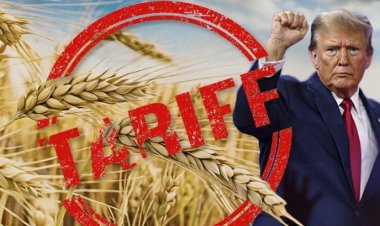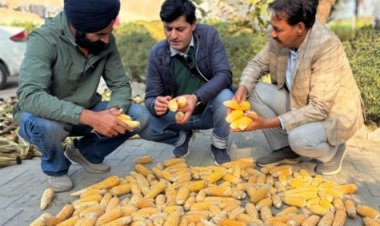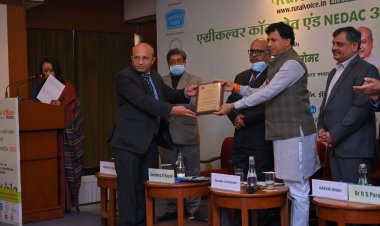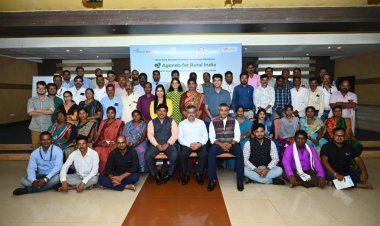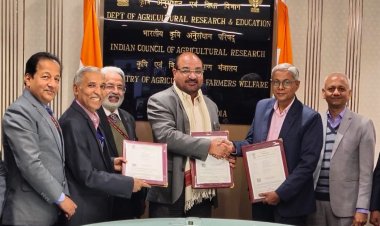Niti Aayog report highlights urgent need to cut import reliance for edible oil self sufficiency
The NITI Aayog's new report, "Pathways and Strategies for Accelerating Growth in Edible Oils Towards the Goal of Atmanirbharta," emphasizes the need for India to cut its import dependency to achieve self-sufficiency. Highlighting a significant demand-supply gap, it proposes strategies including increased cultivation, improved yields, and optimized processing to enhance domestic production and reduce imports

The NITI Aayog's newly released report, titled "Pathways and Strategies for Accelerating Growth in Edible Oils Towards the Goal of Atmanirbharta," underscores the critical need for India to reduce its reliance on edible oil imports to achieve self-sufficiency. The report was unveiled by Suman Bery, Vice-Chairman of NITI Aayog, in the presence of Prof. Ramesh Chand and other senior officials from the Ministry of Agriculture & Farmers Welfare (MoA&FW), ICAR institutes, and industry stakeholders on thursday.
NITI Aayog's report highlighted that Over recent decades, India has witnessed a dramatic increase in per capita edible oil consumption, which now stands at 19.7 kg per year. This rising demand has significantly outpaced domestic production, forcing the country to rely heavily on imports. In the fiscal year 2022-23, India imported 16.5 million tonnes (MT) of edible oils, with domestic production covering only 40-45 percent of the demand. This scenario poses a substantial challenge to achieving self-sufficiency in the sector.
The report offers a comprehensive analysis of the current state of India’s edible oil sector and its future potential. It provides a roadmap to address the existing challenges, focusing on bridging the demand-supply gap and implementing new strategies to achieve self-reliance. According to the Business-As-Usual (BAU) scenario, the national supply of edible oil is projected to reach 16 MT by 2030 and 26.7 MT by 2047.
The report examines three approaches for demand forecasting: the Static/Household Approach, the Normative Approach based on ICMR-NIN's recommended intake levels, and the Behavioristic Approach, which considers shifts in consumption patterns due to lifestyle changes and economic growth. The projections indicate a substantial gap between supply and demand under various scenarios, with the most significant gap occurring under the Behavioristic Approach Scenario II, which forecasts a demand-supply gap of up to 40 MT by 2047.
To address these challenges, the report recommends several strategic interventions categorized into three key pillars: Crop Retention and Diversification, Horizontal Expansion, and Vertical Expansion. The Horizontal Expansion Strategy aims to increase the area dedicated to oilseed cultivation, utilizing fallow lands and wastelands. The Vertical Expansion Strategy focuses on enhancing the yield of existing crops through improved practices and technologies.
Additionally, the report introduces a state-wise quadrant approach to target interventions based on cultivation area and yield. By addressing regional disparities and focusing on high-potential areas, the report suggests that India can significantly increase its domestic oil production and reduce import dependence.
The report projects that implementing these strategies could boost domestic edible oil production by up to 43.5 MT, potentially bridging the current import gap. Key recommendations include utilizing rice fallow areas, enhancing yield through technological advancements, and expanding palm oil cultivation.
Furthermore, the report emphasizes the importance of optimizing seed utilization and processing capabilities. It highlights that improving seed quality and modernizing processing infrastructure are crucial for increasing production and achieving self-sufficiency.
Based on insights from a field survey of 1,261 farmers across major oilseed-growing states, the report calls for focused efforts on oilseed area retention, seed traceability, advanced production technologies, and effective market linkages. The comprehensive strategy aims to ensure national food security and economic stability by reducing import dependence and enhancing domestic production capabilities.


 Join the RuralVoice whatsapp group
Join the RuralVoice whatsapp group



















